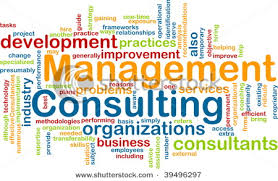
You will have many responsibilities as a human resource specialist. This means that you must be able and willing to interact with many people. You will have to feel comfortable with both senior executives as well as entry-level employees. This job requires you to be meticulous and able to manage large quantities of information daily. This is because you will have to make decisions every day, and evaluate multiple options.
A human resources specialist's job duties
Support and advice for the management of an organization are often provided by human resources specialists. These specialists are also responsible for resolving issues related to employee relations and FMLA cases. The human resources specialist is responsible for applicant tracking and new hire paperwork. They also ensure that all documentation is current and accurate. This job requires excellent communication skills. Other duties of a Human Resources Specialist include maintaining employee records in databases, preparing, presenting and reviewing reports, as well as assisting with the preparation a company's Budget.
Human resources specialists must have a good knowledge of labor laws. They should also be able make suggestions on how to best run an organization. They should also be familiarized with all company policies and ensure that they're enforced. They must also be able to respond to employee concerns and offer advice on how best to retain and recruit the best employees. They prepare orientation materials and maintain records for all HR paperwork.

What are the requirements to be a human resource specialist?
A number of education requirements are required for anyone who wants to be a human resources specialist. An undergraduate degree will give you the foundation knowledge necessary to succeed in this field. However, an MBA program that focuses on human resources will give more detailed skills and knowledge. Employers prefer MBA graduates because they have strong business and critical thinking skills. Additionally, an MBA degree can open up new career opportunities and help you gain experience and knowledge in your chosen field.
You must be able to communicate and interact well with others to succeed as a Human Resources Specialist. You must be able to listen to employees, job applicants, and other stakeholders in order to provide the best possible services. You should also be able and able to resolve conflicts and other disputes.
For a human resource specialist, career options
A human resources specialist can choose from many career paths. These include recruiting, compliance, engagements, diversity and inclusive, leave of absences, payroll and recruitment. It will all depend on what you are interested in. You have many choices in this area, and it will be easier to find the right one for you.
Working in HR can lead to a career as a human resources professional. Some HR specialists are generalists, which means they have broad responsibilities that are vital to a company's operations. But, larger companies often hire HR specialists to concentrate on a particular area like labor relations.

A Human Resources Specialist will generally act as an intermediary between employees & management. They can also help with employee grievances, negotiate contracts, or bring in new employees.
FAQ
How does a manager learn to manage?
Good management skills are essential for success.
Managers must monitor the performance of subordinates constantly.
You must act quickly if you notice that your subordinate isn’t performing to their standards.
You must be able to spot what is lacking and how you can improve it.
What is the difference in a project and program?
A project is temporary, while a program lasts forever.
A project typically has a defined goal and deadline.
It is often performed by a team of people, who report back on someone else.
A program often has a set goals and objectives.
It is typically done by one person.
What role should a manager play within a company
Different industries have different roles for managers.
Managers generally oversee the day-today operations of a business.
He/she makes sure that the company meets its financial obligations, and that it produces goods or services that customers desire.
He/she ensures employees adhere to all regulations and quality standards.
He/she plans new products and services and oversees marketing campaigns.
What are the steps that management takes to reach a decision?
Managers have to make complex decisions. This involves many factors including analysis, strategy and planning, implementation, measurement and evaluation, feedback, feedback, and others.
It is important to remember that people are human beings, just like you. They make mistakes. You are always capable of improving yourself, and there's always room for improvement.
This video will explain how decision-making works in Management. We'll discuss the different types and reasons they are important. Managers should also know how to navigate them. The following topics will be covered:
What is Six Sigma and how can it help you?
It's a method for quality improvement that focuses on customer service as well as continuous learning. This is an approach to quality improvement that uses statistical techniques to eliminate defects.
Motorola invented Six Sigma in 1986 as part its efforts to improve manufacturing.
It was quickly adopted by the industry and many companies are now using six-sigma to improve product design, production, delivery, customer service, and product design.
Statistics
- This field is expected to grow about 7% by 2028, a bit faster than the national average for job growth. (wgu.edu)
- As of 2020, personal bankers or tellers make an average of $32,620 per year, according to the BLS. (wgu.edu)
- The profession is expected to grow 7% by 2028, a bit faster than the national average. (wgu.edu)
- The BLS says that financial services jobs like banking are expected to grow 4% by 2030, about as fast as the national average. (wgu.edu)
- UpCounsel accepts only the top 5 percent of lawyers on its site. (upcounsel.com)
External Links
How To
What is Lean Manufacturing?
Lean Manufacturing uses structured methods to reduce waste, increase efficiency and reduce waste. They were developed in Japan by Toyota Motor Corporation (in the 1980s). The goal was to produce quality products at lower cost. Lean manufacturing is about eliminating redundant steps and activities from the manufacturing process. It is made up of five elements: continuous improvement, continuous improvement, just in-time, continuous change, and 5S. Pull systems involve producing only what the customer wants without any extra work. Continuous improvement refers to continuously improving existing processes. Just-in time refers to components and materials being delivered right at the place they are needed. Kaizen is continuous improvement. This can be achieved by making small, incremental changes every day. Fifth, the 5S stand for sort, set up in order to shine, standardize, maintain, and standardize. These five elements are used together to ensure the best possible results.
Lean Production System
The lean production system is based on six key concepts:
-
Flow: The goal is to move material and information as close as possible from customers.
-
Value stream mapping - break down each stage of a process into discrete tasks and create a flowchart of the entire process;
-
Five S’s - Sorted, In Order. Shine. Standardize. And Sustain.
-
Kanban: Use visual signals such stickers, colored tape, or any other visual cues, to keep track your inventory.
-
Theory of constraints: Identify bottlenecks and use lean tools such as kanban boards to eliminate them.
-
Just-intime - Order components and materials at your location right on the spot.
-
Continuous improvement is making incremental improvements to your process, rather than trying to overhaul it all at once.